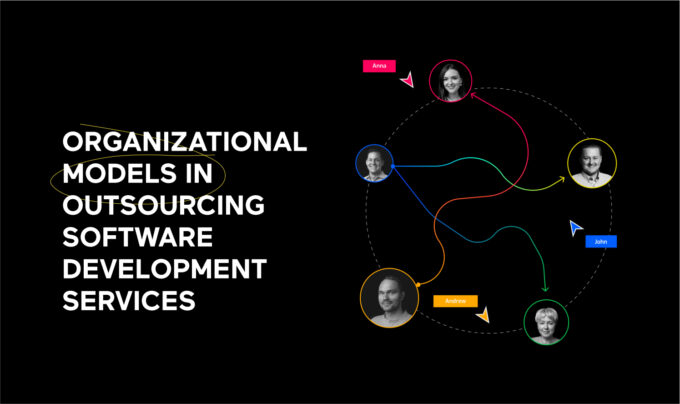Outsourcing software development is a practice that’s been around for quite some time, and for good reason. It’s like having a secret weapon in your business arsenal! Picture this: you’re in need of a top-notch software solution, but your in-house team is swamped with other projects. That’s where outsourcing comes in – like a superhero to the rescue!
Think of it as hiring a team of experts from around the world to work on your project, bringing a wealth of experience and knowledge to the table. Companies like Google, Airbnb, and Dropbox have all reaped the benefits of outsourcing software development, using it to bring their ideas to life and stay ahead of the game. With outsourcing, you get access to a pool of talented developers, flexible resources, and reduced costs, all while focusing on growing your core business.
So, why not join the outsourcing revolution and give your software development the boost it deserves? Who knows, it could be the key to unlocking the full potential of your business! Continue reading to learn more about the Whys and Hows of outsourcing software development.
Why do companies do it?

Outsourcing software development can help companies keep up with the latest technologies, thereby helping them stay ahead of the competition. Additionally, outsourcing allows businesses to free up internal resources that would otherwise be spent on developing in-house software solutions. Ultimately, outsourcing software development is a great way for companies to save time and money while still achieving their desired outcomes.
By outsourcing software development services, businesses gain access to highly skilled professionals with the knowledge and expertise required to create customized solutions tailored to their needs. Furthermore, these professionals can work quickly and efficiently to meet tight deadlines, meaning companies can get their projects up and running in no time. In addition to saving money on development costs, outsourcing software development also allows businesses to focus on other areas of their business that require attention.
Overall, outsourcing software development is a great way for companies to remain competitive in the market while still keeping costs low. With access to the latest technologies and expert developers dedicated to meeting tight deadlines, businesses can benefit from reduced costs and improved efficiency when they outsource software development services.
Models of outsourcing development

Choosing the right outsourcing model depends on the specific requirements of your project, your budget, and your overall business goals. Here are some of the most commonly implemented models:
- Dedicated development team model: In this model, a dedicated team of developers is assigned exclusively to your project. This team operates as an extension of your in-house team, working closely with you to achieve your goals.
- Time and Material model: This model is based on the amount of time and resources required to complete a project. The client pays for the resources used, such as developer time, project management, and other operational expenses.
- Fixed-price model: In this model, the software development vendor provides a fixed quote for the entire project, with a clearly defined scope, timelines, and budget. This model is best suited for projects with well-defined requirements.
- Hybrid model: The hybrid model combines elements of the dedicated development team and time and material models. This model allows for more flexibility in terms of resources and scope, making it ideal for complex projects with evolving requirements.
- Turnkey solution model: In this model, the vendor takes responsibility for the entire software development project, including design, development, testing, and deployment. This model is best suited for businesses that want a fully managed solution with a single point of contact.
How to select an ideal outsourcing partner?

Here are some key steps you should take when selecting an outsourcing partner:
- Define Your Project Goals – Outline the scope, timeline, budget, and desired outcomes for your project before beginning any research. This will give you a starting point when finding a provider who meets all of your requirements.
- Identify Providers – Research potential providers by studying their portfolios and reviews from previous clients. It’s also beneficial to check if they have any certifications or awards.
- Evaluate Cost – Make sure you compare quotes from different providers and factor in any additional fees such as maintenance, support, and testing.
- Check References – Request references from previous clients to get a better understanding of their work quality and customer service. Ask questions such as: “Were they able to complete the project on time and within budget?”
- Sign the Contract – After reviewing each provider’s details, select one to sign a contract with. This should include information about payment terms, timelines, deadlines, deliverables, and more.
Intellectual Property Protection and Legal Considerations

Outsourcing software development can offer numerous benefits, but it also raises concerns about intellectual property (IP) protection and legal compliance. To safeguard your IP rights and ensure a successful outsourcing partnership, consider the following steps:
- Non-disclosure agreements (NDAs): Before sharing sensitive information with your outsourcing partner, have them sign a non-disclosure agreement (NDA). NDAs establish a legal obligation to protect your confidential information and prevent unauthorized use or disclosure.
- Intellectual property ownership: Clearly define the ownership of any intellectual property developed during the outsourcing process. This should be explicitly stated in the contract to avoid disputes later. Ensure that the agreement assigns all rights, including copyrights, patents, and trademarks, to your organization upon project completion.
- Due diligence: Conduct thorough research on your potential outsourcing partner, including their history, reputation, and legal compliance. Investigate any past legal disputes or violations to ensure they have a solid track record of ethical conduct and adherence to the law.
- Data privacy and security: Assess your outsourcing partner’s data security policies and practices to ensure compliance with relevant data protection regulations, such as the General Data Protection Regulation (GDPR) in Europe or the California Consumer Privacy Act (CCPA) in the United States. Ensure that your partner implements strong encryption and secure data storage practices to protect sensitive information.
- Jurisdiction and governing law: Specify in the contract which jurisdiction and governing law will apply in case of any disputes. This helps clarify the legal framework and procedures that will be followed, providing a clear path for conflict resolution.
- Liability and indemnification: Clearly outline the responsibilities and liabilities of each party in the outsourcing agreement. Establish indemnification clauses to protect your organization from potential losses or damages resulting from your partner’s actions or negligence.
Final Thoughts
Outsourcing software development has become an increasingly popular approach for businesses looking to remain competitive. Companies can outsource their Content Management System (CMS) needs, such as Drupal, to expert Drupal development companies in order to reduce costs and increase efficiency.








